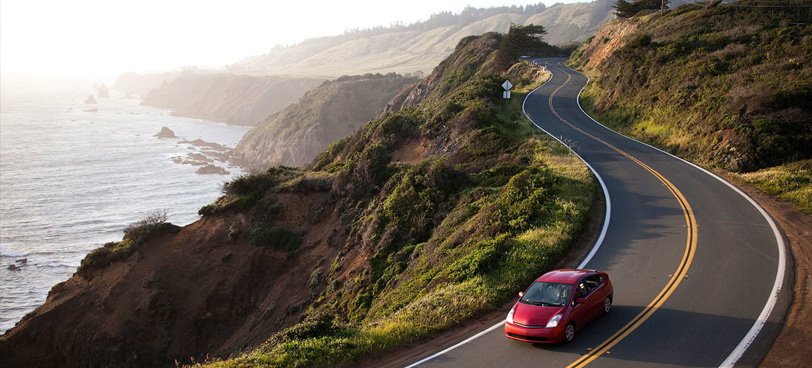HOUSEHOLDS are bracing for a tough winter as energy bills soar, but one couple has found a way to escape the crisis – by going off-grid.
Jess Queenan, 27, used to live in Bewdley, Worcestershire, and work as a gas engineer.
But earlier this year she decided to pack it all in and renovate a Volkswagen van with her boyfriend James, 23, instead of using the money to lay down a deposit for a second home.
James also quit his jobs at Asda and Amazon.
Five months ago, they’d finished the van renovations and decided to drive to North Wales where they hopped between wild camping spots.
That was until a month ago when they left the van in the UK and headed to Chile to stay in a kayaking hostel.
There they get free accommodation in exchange for making breakfast for other guests.
The move to living off-grid has seen Jess save thousands a year rather than having to pay for the costs of her home.
She rents out the home to a tenant for £520 a month and uses £270 to pay off the mortgage and the other £250 to pay for energy bills – which works out as £6,240 a year.
The van cost roughly £25,000 to buy and renovate and they still have to work to pay for everyday living, but Jess said it was worth it for a better life balance and to save on bills.
“I was at work and I was fed up and on a horrible job, and it was just a moment of ‘I don’t like the path I’m taking’,”;; she told The Sun.
“I spoke to James and said let’s start looking for a van.
“A few weeks before we moved into it I went into radio silence.
“The anxiety of quitting a job that was a good job, leaving my family and moving into a van scared the crap out of me.
“I didn’t speak to James for about three days – I panicked.
“But we’ve been in Chile for a month now and we go back to the UK at the end of January.”;;
The van comes complete with a composting toilet, and a shower, plus kitchen and bedroom areas.
They get their hot water from a diesel heater.
All in all, Jess said they spend £120 a month on insurance, £200 on fuel and £50 on a TAX, MOT and maintenance saving pot.
That works out as £4,440 a year.
After the money she makes renting out her home in the UK and saving on mortgage and energy bills that works out as a £1,800 a year saving.
Living off-grid has also allowed Jess and James to take up part-time work which helps them save extra money, like the hostel job in Chile.
Jess also freelances for businesses to help manage their social media accounts and edits their video content – something she can do anywhere.
They’re saving money on food as well.
When she was working as a gas engineer Jess said she would buy garage sandwiches which not only cost a lot, they left her feeling unhealthy too.
Now they’re living off-grid, she said she’s got time to cook fresh food which works out cheaper.
She said: “The lifestyle of working on the road – it’s pretty unhealthy.
“You end up eating sandwiches from garages, it’s not healthy for your body. You spend a fortune on the road, you’re doing that every day.
“We cook very much vegan in the van, but we do have meats and dairy because I now have more time to cook.
“You can take more time to focus on the cost of it.
“So I can spend about £3 a night between the two of us.”;;
The couple plan on living off-grid for the foreseeable future, spending summers at home in the UK and winters in warmer climates.
And despite the initial hefty cost of forking out for the van and fixing it up to a liveable standard, Jess said she’d definitely suggest others do the same.
Over time, the investment will pay for itself.
Jess said: “To buy the van was £7,000 and to renovate it was £18,000 but we looked at it like the mortgage deposit on the second house.
“We would 100% advise to someone else to do it. It’s not as hard as it sounds. It’s glorious.”;;
How else can I save on my energy bills?
If you’ve not got the budget to go off-grid or you don’t want to, there are other ways you can save on your energy bills.
A £400 energy rebate is being handed out to millions of households across the UK.
The payment has been split into six instalments to be made monthly between October this year and March 2023.
The two payments for October and November are worth £66 and £67 for December, January, February and March.
Plus, there’s a range of other cost of living payments being made depending on your circumstances.
Millions should have received both instalments of the £650 cost of living payment while a £300 pensioner cost of living payment is being made to millions too.
Plus, there was a £150 disability payment which was made to millions in September and October this year.
In the Government’s mini-budget earlier this month a further batch of payments was announced by the Chancellor Jeremy Hunt.
If you’re not eligible for the cost of living payments you might be for the Household Support Fund.
It’s a central pot of money which has been allocated to councils who then decide how to distribute it and who to.
But that means whether you’re eligible and what you’ll get will depend on where you live.
Shropshire Council is giving out £180 to thousands of households, for example.
Plenty of energy companies offer customers grants if they’re struggling to pay for bills.
Companies that offer grants include Bulb, EDF, E.On, Octopus Energy, OVO and Scottish Power.
To find out more you can check out their websites. Their contact details are likely to be on your bill slips as well.



